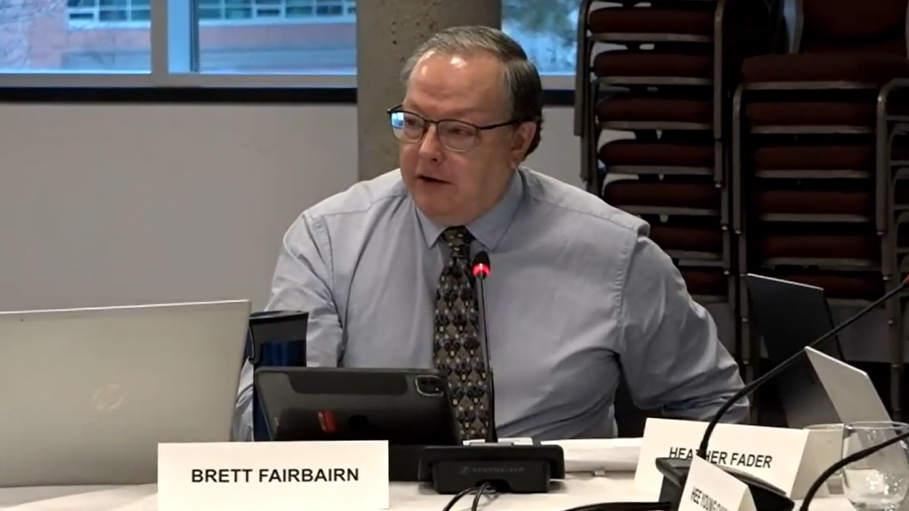TRU’s third and final public presidential search forum wrapped up at noon on Sept. 11 in the CAC’s Mountain room, with the committee hearing from faculty and students about who should replace TRU President and Vice-Chancellor Brett Fairbairn after he retires in June of 2025.
From highlighting the importance of Indigenous consultation to the need for fundraising, the few in attendance Wednesday presented a variety of issues that they hope the next president will address.
“The goal of the open forum is to provide the search committee with a diverse set of perspectives to help us carry out the search for TRU’s next president and vice-chancellor,” Board chair Hee Young Chung said.
Forum attendee Mei Lin Cheung, from TRU’s alum department, said she wants a new president to extend their focus past future and current students.
“It would be great if the next president had a lot of experience keeping up with TRU alumni and engaging with them,” she said. “Because the network is so much bigger than those […] currently on our campus.”
Participants also discussed which of TRU’s features should be highlighted to attract strong candidates.
“TRU is in a unique position right now,” said Katrina Harding from TRU Giving. “With the beginning of an emphasis on research and with our relationship with BC Wildfire Service, it’s really a unique opportunity to solidify what TRU is going to be on the world stage.”
Before this final event, two virtual forums were hosted in the summer, one in July and another in August.
“We’ve had staff [and] students, all with different comments on what they would like to see in the next president,” Chung said, commenting on the feedback from past forums.
According to Chung, one of the primary concerns shared by students during the summer forums is the need for “a president who engages the students more.”
The presidential search committee is comprised of 17 members, including university staff, administrators, board members, Indigenous representatives, and one student.
“We’ve tried to capture a lot of stakeholders and get feedback from them,” Chung said.
A consulting firm, Boyden Canada, also assists with and oversees the search process.
“[Boyden Canada specializes] in helping educational institutions search for executives,” Chung explained.
The expected appointment of a new president in the summer of 2025 will mark the fifth person to hold the position since TRU received full university status in 2005.
Although TRU’s Board of Governors ultimately holds the power to appoint the next president under section 27 of the University Act, Chung said that input from the community is valuable.
Updates on the presidential search can be found on TRU’s search website.

